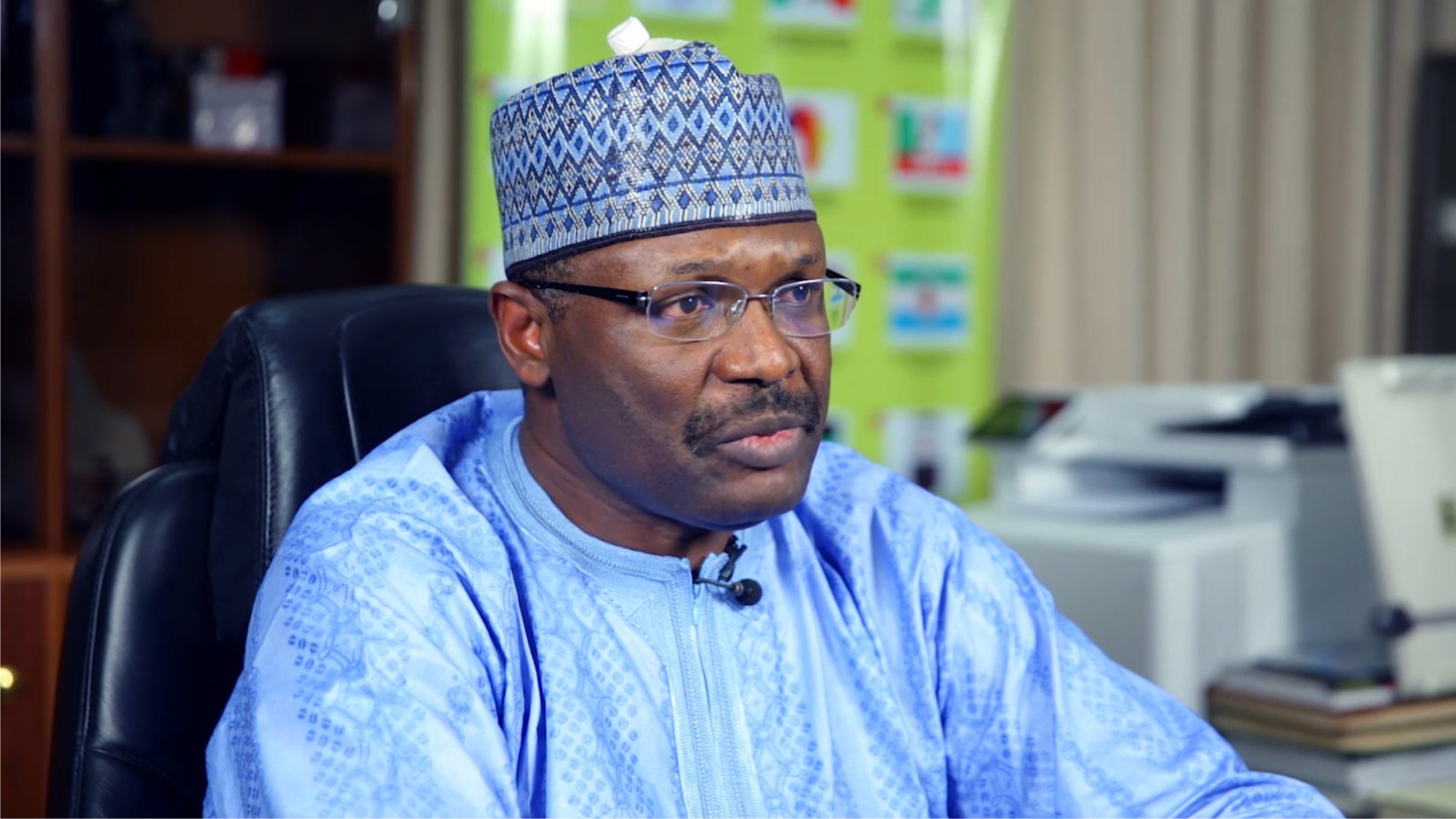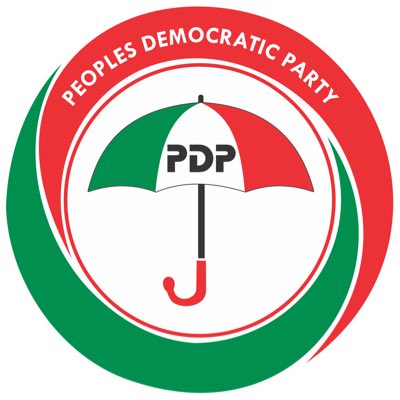Politics
Executive Defection: Independent Candidacy To The Rescue

It is common ground that under the present constitutional arrangement in Nigeria, independent candidacy in an election is expressly outlawed. A community reading of the proviso to section 40 and section 221 of the Constitution of the Federal Republic of Nigeria, 1999, as amended, buttress that only registered political parties are authorised to canvass for votes for a candidate in an election.
Put tersely, a candidate in an election must be sponsored by an INEC registered political party.
This present position of the law (no independent candidate in an election), has thrown up confusion in the polity leading to diametrically opposed or divergent views about who owns the votes cast in an election especially in relation to members of the executive arm of government, who may choose to decamp after being elected into office on the platform of a political party.
Throughout the gamut of constitution, there is no express provision barring or prohibiting an elected member of the executive arm of Government from decamping.
This is unlike what is expressly obtainable under the provisions of sections 68(1)(g) and 109(1)(g) of the Constitution of the Federal Republic of Nigeria (as amended) where an elected member of the National Assembly or State House of Assembly respectively is (subject to recognised exceptions therein) liable to vacate his seat if he becomes a member of another political party before the expiration of the period for which he was elected.
Answering the query to whom does the votes cast in an election belong has therefore become very problematic.
Some argue that the votes belong to the political party because, among other things, it is the party (its logo not name or photograph of the candidate) that is voted on election day. It is the exclusive constitutional preroga-tive of the party to sponsor candidates in an election.
On the contrary, others contend that votes cast in an election belong to the candidate because the party does not go for screening of candidates and the Certificate of Return is issued to the candidate in his name and not in the name of the political party.
They further argue that the Certificate of Return is issued to a named candidate of a political party (for instance, issued to Prof of APC as the winner) and not for the party (for instance, issued to Prof for APC as the winner).
All the sides of the argument are attractive and carry forceful convincing logic.
No person can win an election if he is not sponsored by a political party. No party can win an election if it does not have a candidate in an election.
This is like Siamese (thoracapagus con-joined) twins situation or resolving the query of seniority between the egg and chicken (which came first).
Even the courts are also divided on the matter of who owns the votes in an election where an elected member of the executive arm of government defects to another political party following from the types of judicial decisions that emanate from the lower superior courts of record lately.
It is thus settled that it will only take the Supreme Court to decide the matter conclusively on a final appeal.
Even at that, opinions will continue to be divided if the constitutional provi-sions remain the way they are presently couched and if the Constitution continues to outlaw independent candidacy in an election.
To break this serious deadlock, it is strongly suggested that the Constitution be amended to allow independent candidacy in an election. That way, the present nagging debates about the owner of votes cast in an election will be laid to rest permanently.
With this proposed constitutional amend-ment in favour of independent candidacy, if a person contests an election as an independent candidate, the argument as to who owns the votes will never arise. The votes surely belong to him.
Where on the other hand, a person is a sponsored candidate of a political party, it will no longer be open for that person to claim that the votes belong to him and not to the political party on whose platform he contested and won the election.
Given the present quagmire, independent candidacy is “a win win situation” and it is consistent with the right to freedom of association enshrined in section 40 of the Constitution of the Federal Republic of Nigeria 1999, which provides as follows: Every person shall be entitled to assembly freely and associate with other persons, and in particular he may form or belong to any political party, trade union or any association for the protection of his interests.
The right to freedom of association includes not only the right to dissociate but also the freedom to be alone (independent).
We call on our legislature to do the needful and save all the huge verbal expenditure and juristic ink being wasted on a matter that has a simple solution.
A new normal is possible!
By: N.O. Obiaraeri
Obiaraeri resides in Owerri.
Niger Delta
PDP Declares Edo Airline’s Plan As Misplaced Priority

News
Oji Clears Air On Appointment Of 15 Special Advisers By Fubara

The Special Adviser on Political Affairs to the Rivers State Governor, Dr. Darlington Oji, has disclosed that about 15 Special Advisers to the governor were duly approved by the Rivers State House of Assembly before the current political crisis in the State.
Oji made the disclosure in a Television programme in Port Harcourt, recently, while reacting to issues surrounding appointments, the impeachment moves against the governor and his deputy, and allegations of financial mismanagement.
He clarified that the appointment of Special Advisers was carried out in strict compliance with constitutional provisions, and received the approval of the Rivers State House of Assembly under the leadership of the Speaker, Martins Amaewhule, before the crisis began.
According to the Special Adviser, the appointments did not require any further screening, countering claims that the governor violated due process in constituting his advisory team.
On the impeachment proceedings against Governor Siminalayi Fubara, and his deputy, Professor Ngozi Odu, Oji described the process as unfounded and lacking constitutional backing.
He said that several lawmakers who initially supported the impeachment move were now reconsidering their stance after discovering that the process had no legal basis.
Oji also attributed the impeachment plot to personal and political ambitions, saying it is not motivated by the interest or welfare of the people of Rivers State.
Speaking on the financial position of the State after the Emergency Rule, the Special Adviser disclosed that the governor met about ?600 billion in the state’s coffers upon assumption of office.
He explained that the availability of funds enabled the administration to continue governance smoothly without the need for a supplementary budget.
The governor’s aide also refuted allegations of financial mismanagement against the governor, and stressed that all allocations to lawmakers and constituency projects were transparently handled.
He maintained that the Fubara administration remained focused on development, stability, and good governance despite the political distractions in the State.
Oji expressed confidence that the impeachment moves would eventually be abandoned as legislators and the public become more informed, adding that the governor’s leadership has continued to reassure citizens and sustain political stability in the State.
King Onunwor
Politics
Rivers Political Crisis: PANDEF Urges Restraint, Mutual Forbearance

Accordingg to the statement, the Board and National Executive Committee of PANDEF, noted with very grave concern the recent spate of political developments in Rivers State.
“Regrettably, these developments have now degenerated into the decision of the Rivers State House of Assembly to commence impeachment proceedings against the governor and deputy governor.
“This is a deeply disturbing situation that demands urgent attention in order to forestall further escalation and breakdown of law and order.
“This concern is heightened by the critical importance and strategic centrality of Rivers to the Niger Delta region and to the broader socio-political stability and economic wellbeing of Nigeria as a whole”, the statement said.
The Forum called on all parties involved in the resurgent political imbroglio to sheathe their swords and embrace peace.
“This should be guided by the principles of give-and-take, dialogue, tolerance, and political equanimity.
“All stakeholders must place paramount importance on peace, development and the welfare of the people of Rivers.
“We must now focus squarely on good governance and development of the state,” the Forum said.
PANDEF commended President Bola Tinubu, the leadership of the All Progressives Congress (APC), respected elders of Rivers State, and other well-meaning Nigerians for their previous and ongoing efforts aimed at restoring peace and stability in the state.
-

 News3 days ago
News3 days agoDon Lauds RSG, NECA On Job Fair
-

 Niger Delta24 hours ago
Niger Delta24 hours agoPDP Declares Edo Airline’s Plan As Misplaced Priority
-

 Sports1 day ago
Sports1 day agoSimba open Nwabali talks
-

 Nation1 day ago
Nation1 day agoHoS Hails Fubara Over Provision of Accommodation for Permanent Secretaries
-

 Transport1 day ago
Transport1 day agoNigeria Rates 7th For Visa Application To France —–Schengen Visa
-
Niger Delta1 day ago
Stakeholders Task INC Aspirants On Dev … As ELECO Promises Transparent, Credible Polls
-
Niger Delta24 hours ago
Students Protest Non-indigene Appointment As Rector in C’River
-

 Oil & Energy1 day ago
Oil & Energy1 day agoElectricity Consumers Laud Aba Power for Exceeding 2025 Meter Rollout Target

